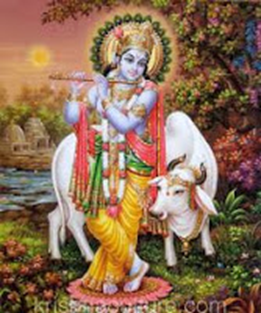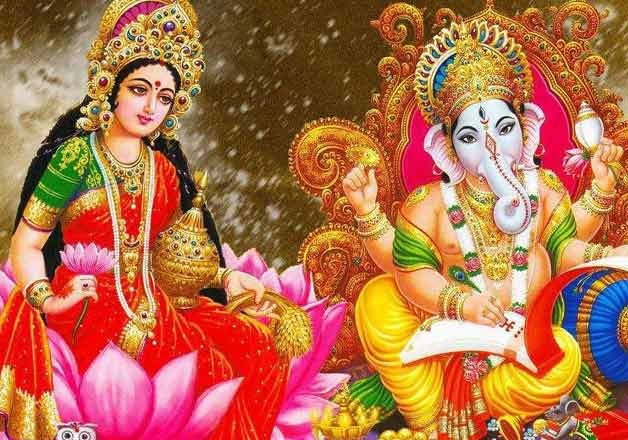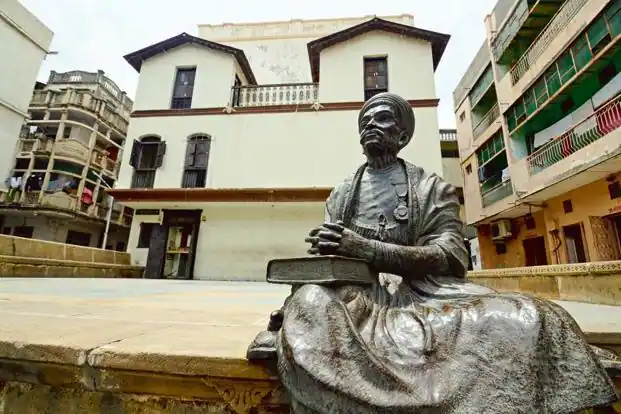Lord Krishna (Janmashtami)
Vaishnavism is one of the major Hindu denominations, it considers Vishnu as the Supreme Lord. Hindu denominations are traditions within Hinduism centered on one or more gods or goddesses. Vishnu’s incarnations descend to empower the good and fight evil, thereby restoring Dharma or righteousness.
Lord Krishna is eighth of the ten incarnations of lord Vishnu, as per Hindu mythology. Lord Krishna is particularly popular in Vrindavan (Uttar Pradesh), in Dwarka (Gujarat); as Jagannath in Puri (Odisha), in Mayapur (West Bengal), as Vithoba in Pandharpur (Maharashtra), as Shrinathji in Nathdwara (Rajasthan), as Udupi Krishna in Udupi (Karnataka) and as Guruvayurappan in Guruvayur (Kerala).

The earliest text containing detailed descriptions of Lord Krishna as a personality is the epic Mahabharata. The Harivamsa, a later appendix to the Mahabharata contains a detailed version of Krishna’s childhood and youth. The Puranas, especially the Bhagavat Puran also describe Lord Krishna’s life. These texts are ascribed to Ved Vyas, the legendary author of some of the most important works in Hinduism. Ved Vyas lived around the 3rd millennium BCE (3000 through 2001 BC).
Lord Krishna is popular not just because he is a recent incarnation, but more so because the deity is synonymous with love and joy. Today on Janmashtami (the birth anniversary of Lord Krishna), I am attempting to put forward some of the key messages in the work of Ved Vyas, through the life of Lord Krishna.
The Divine is also Human – The child Krishna was adored for his mischievous pranks. He was known as ‘Maakhan Chor’ (‘Butter thief’). He was described as someone who openly indulged in light hearted mischief and the small joys of life. Through Lord Krishna’s childhood, Ved Vyas is trying to convey to us, that divinity does not mean abstinence from the small joys in life. Let life be joyous.
Importance of childhood and maternal love – Lord Krishna was raised in Gokul by the leader of the cowherds, Nanda, and his wife Yashoda. The child Krishna was always up to something. Mother Yashoda was always running after Him, to stop Him from doing this and stop Him from doing that. Mother Yashoda even punished him by tying him to a mortar for stealing butter. Child Krishna despite being the Supreme Vishnu accepts his mother’s punishment. There are two things conveyed here very beautifully:
- Childhood is an extremely important phase in the development of a human being – Child Krishna is described as being in the midst of bountiful nature, playing joyfully, making mistakes and enjoying his childhood in the love and care of his mother Yashoda. Even the Supreme Vishnu in the form of Krishna wanted to live the childhood thus. By this way, Ved Vyas has described how childhood should be and stresses on the importance of childhood experiences in human growth.
- A mother has unmatched role to play in the shaping of a child, especially in the moral domain – Mother Yashoda was completely immersed in the loving service of child Krishna, yet she didn’t spare him for his mistakes. Even the Supreme Vishnu in the form of child Krishna accepted punishment from his mother. By this Ved Vyas is reminding mothers not to be blind in motherly emotion, and of their power and duty to raise a human being of high morals.
- Bhagavat Purana mentions “Neither Lord Brahmā, nor Lord Śiva, nor even the goddess of fortune Lakshmi, who is always the better half of the Supreme Lord, can obtain from the Supreme Personality of Godhead, the deliverer from this material world, such mercy as received by mother Yaśodā” ; Message – The position of a mother is the greatest among all those who serve.
- There is also a mention in the Purana that Mahārāja Parīkṣit was surprised, and thought, “What did mother Yaśodā and Nanda Mahārāja do in their previous lives by which they got such a great opportunity, the opportunity to be the affectionate father and mother of Kṛṣṇa?”; Message– Being affectionate parents is a great opportunity for service to God.
Divine Love – As a youth, the cowherd Krishna became renowned as a lover, the sound of his flute prompting the Gopis (wives and daughters of the cowherds) to leave their homes to dance ecstatically with him in the moonlight. The sound of his flute is synonymous with spiritual bliss and the Gopis represent people. Ved Vyas beautifully conveys to us that everyone in the world is a seeker of the divine love or spiritual bliss.
Human Love – Krishna’s favorite among the Gopis was the beautiful Radha. Hinduism has the concept of Shakti and Shaktiman (female and male principle in a God). Each and every god has its partner, ‘betterhalf’ or Shakti and without this Shakti, is sometimes viewed being without essential power. Radha is believed to be Krishna’s consort. The love of Radha and Krishna is said to be eternal and is often described as a meeting of the souls. Here Ved Vyas draws an analogy between human love and divine love. True love is divine.
Bhagavat Gita – The Gita is set in a narrative framework of a dialogue between Pandav prince Arjun and his guide and charioteer Krishna. Bhagavat Gita is one of the greatest work of all times, and it is through Lord Krishna that Ved Vyas delivers to us, pearls of wisdom on how to lead a meaningful life. I do not qualify to comment on the Bhagavat Gita, however there is one verse I’d like to mention:
कर्मण्येवाधिकारस्ते मा फलेषु कदाचन । मा कर्मफलहेतुर्भुर्मा ते संगोऽस्त्वकर्मणि
“Karmanye Vadhikaraste, Ma phaleshou kada chana, Ma Karma Phala Hetur Bhurmatey Sangostva Akarmani”
Meaning – On your duty only, you have right. Not on the fruits of it ever. Never, for the desire for fruit should you perform. Never should you be attracted to inaction (in performance of your duties).
Through the life of Lord Krishna, Ved Vyas has given us a practical guide to good living.





